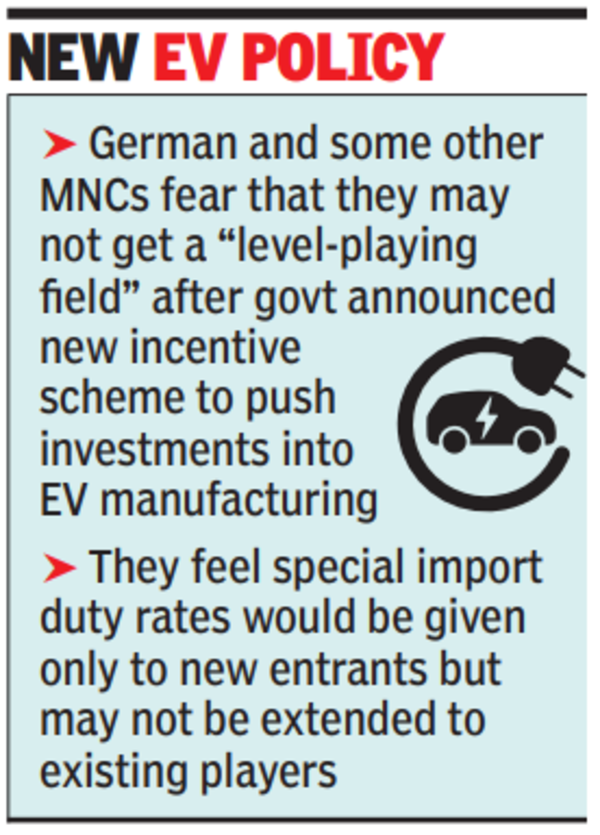NEW DELHI: German and some other multinational companies are concerned at Govt’s new incentive scheme to push
investments
into
electric vehicle manufacturing
, fearing that they may not get a “level-playing field” as special
import duty rates
would be given only to new entrants but may not be extended to existing players.
German makers such as BMW, the Volkswagen group and Mercedes-Benz are already mulling their official position on the matter, with their Indian subsidiaries briefing global headquarters about the new
tax regime
that has been announced by the Indian govt last week, sources told TOI.
The new policy, which mandates a 15% import duty for those who commit at least $500 million (Rs 4,150 crore) of investment towards
local manufacturing
, apart from commitments on domestic value addition, is being seen as favourable for
new players
, such as, Vietnamese as well American Tesla, both of whom had pitched for lower import rates in the initial part of their India plans. India currently levies a tax of 70% or 100% on imported EVs, depending on their value.
German and some other companies such as Korean Hyundai and Kia, apart from some of the Indian homegrown makers, feel their “early investments in the electric space should be counted” retrospectively. “The companies feel that they should not be ‘penalised’ just because they were the early ones to invest for electric vehicles production and localisation in India in line with govt’s thinking. The companies want govt takes into account funds they have already put in towards green technology in their local set-ups here,” one of the sources said.
“They don’t want to be ‘left out’ of any incentive scheme just because the govt is now rolling out sops to attract new investors. Their early commitment to India should also be factored in,” the source said.
Some of the multinational companies are also planning to involve their local embassies in India to press ahead their demand towards driving in a ‘
level-playing field
’. “The embassies are also looking into the matter over the past few months, especially as a policy like the one announced was already being expected where new entrants were to be incentivised for entering India.”
In its discussions with govt last year, the Elon Musk company had indicated that it may use India as a hub to produce lower-cost vehicles for the domestic market and for exports. VinFast had announced a plan to invest $2 billion in India in setting up a facility in Tamil Nadu.

